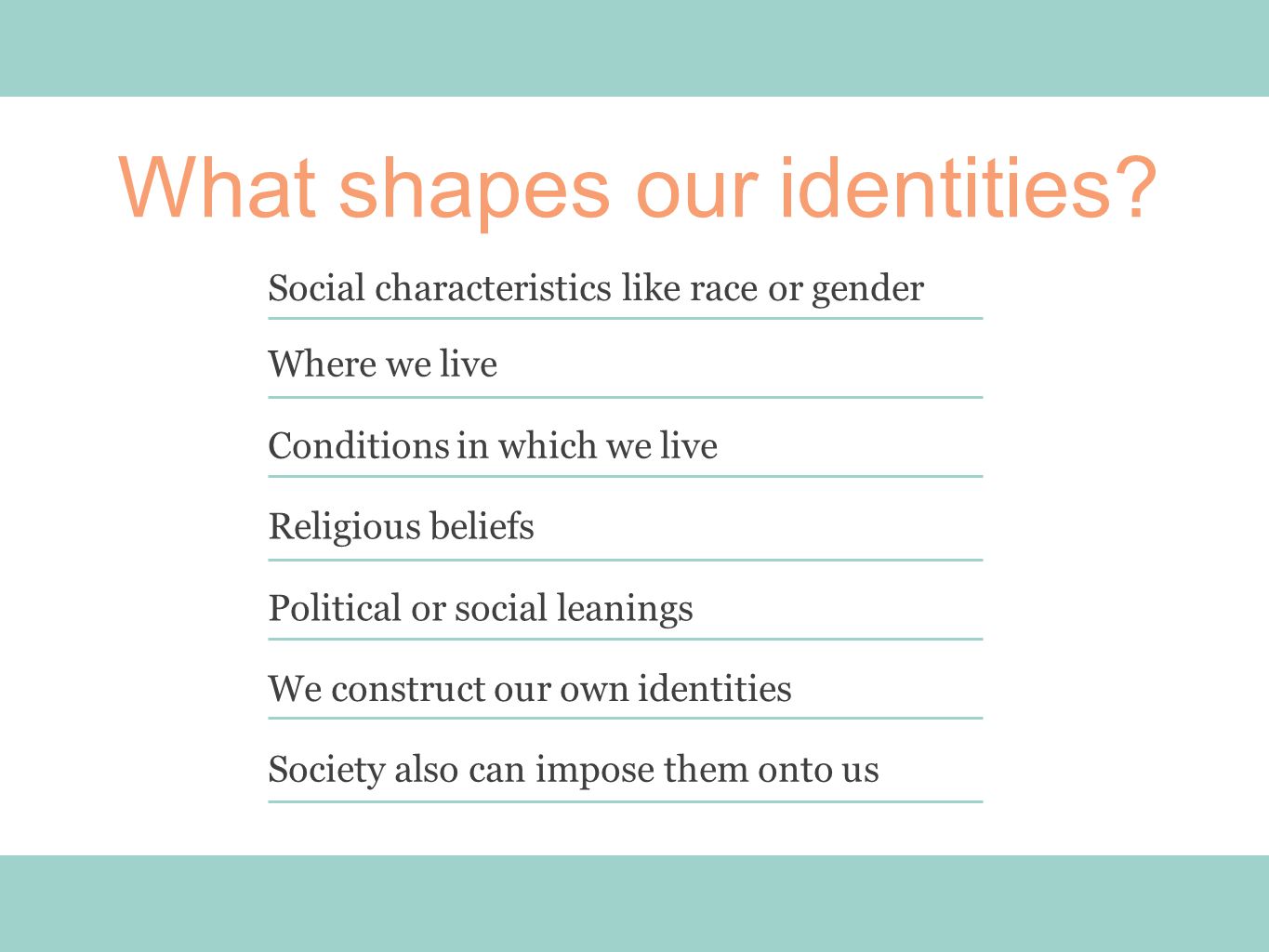Identity is a multifaceted concept that encompasses an individual's sense of self and their unique characteristics, values, beliefs, and behaviors. It is shaped by a variety of factors, including personal experiences, cultural influences, social norms, and relationships.
One of the most significant influences on identity is personal experience. As individuals go through life, they encounter a range of situations and events that shape their sense of self and their beliefs about the world. These experiences can be positive or negative, and they can have a profound impact on an individual's identity. For example, someone who has experienced abuse or trauma may develop a different sense of self and a different set of values than someone who has not experienced such events.
Cultural influences also play a significant role in shaping identity. Culture refers to the shared values, beliefs, and customs of a particular group of people, and it can influence an individual's identity in numerous ways. For example, someone who grows up in a traditional, conservative culture may have a very different sense of self and a different set of values than someone who grows up in a more liberal, progressive culture.
Social norms and expectations can also shape identity. These norms and expectations can vary from one culture to another and can be influenced by factors such as gender, race, and social class. For example, someone who grows up in a culture that values obedience and conformity may develop a different sense of self and a different set of values than someone who grows up in a culture that values individuality and creativity.
Finally, relationships can also shape identity. The people an individual surrounds themselves with can influence their beliefs, values, and behaviors. For example, if an individual has a close group of friends who are all involved in activism, they may be more likely to become involved in activism themselves. Similarly, if an individual has a supportive and loving family, they may develop a stronger sense of self-worth and self-confidence.
In conclusion, identity is shaped by a variety of factors, including personal experiences, cultural influences, social norms, and relationships. It is a complex and multifaceted concept that is constantly evolving as individuals encounter new experiences and relationships throughout their lives.








